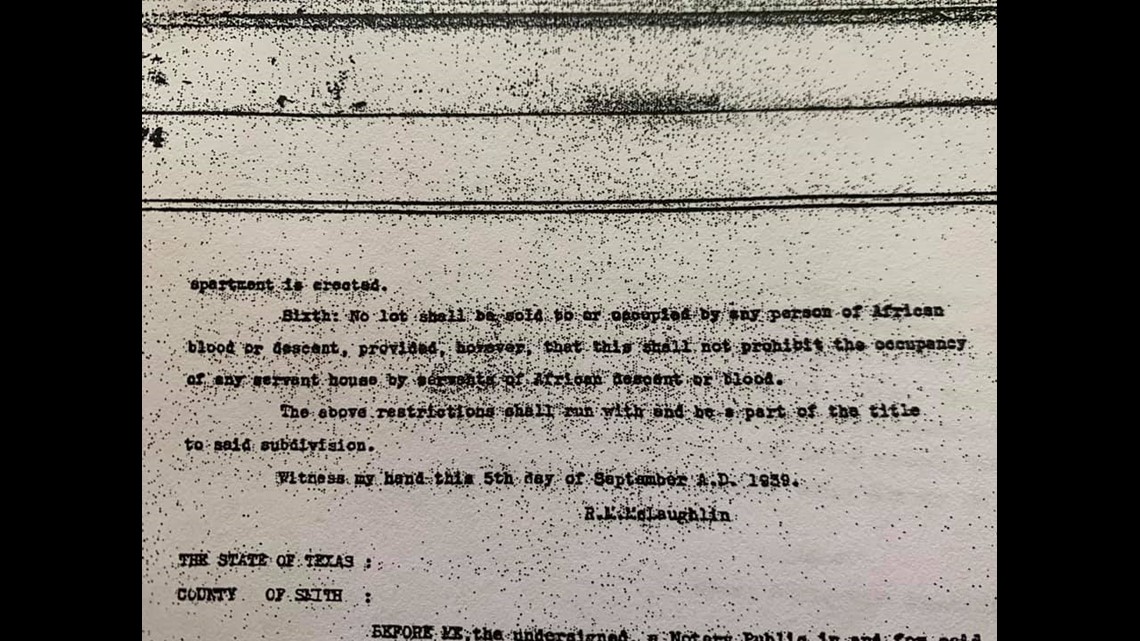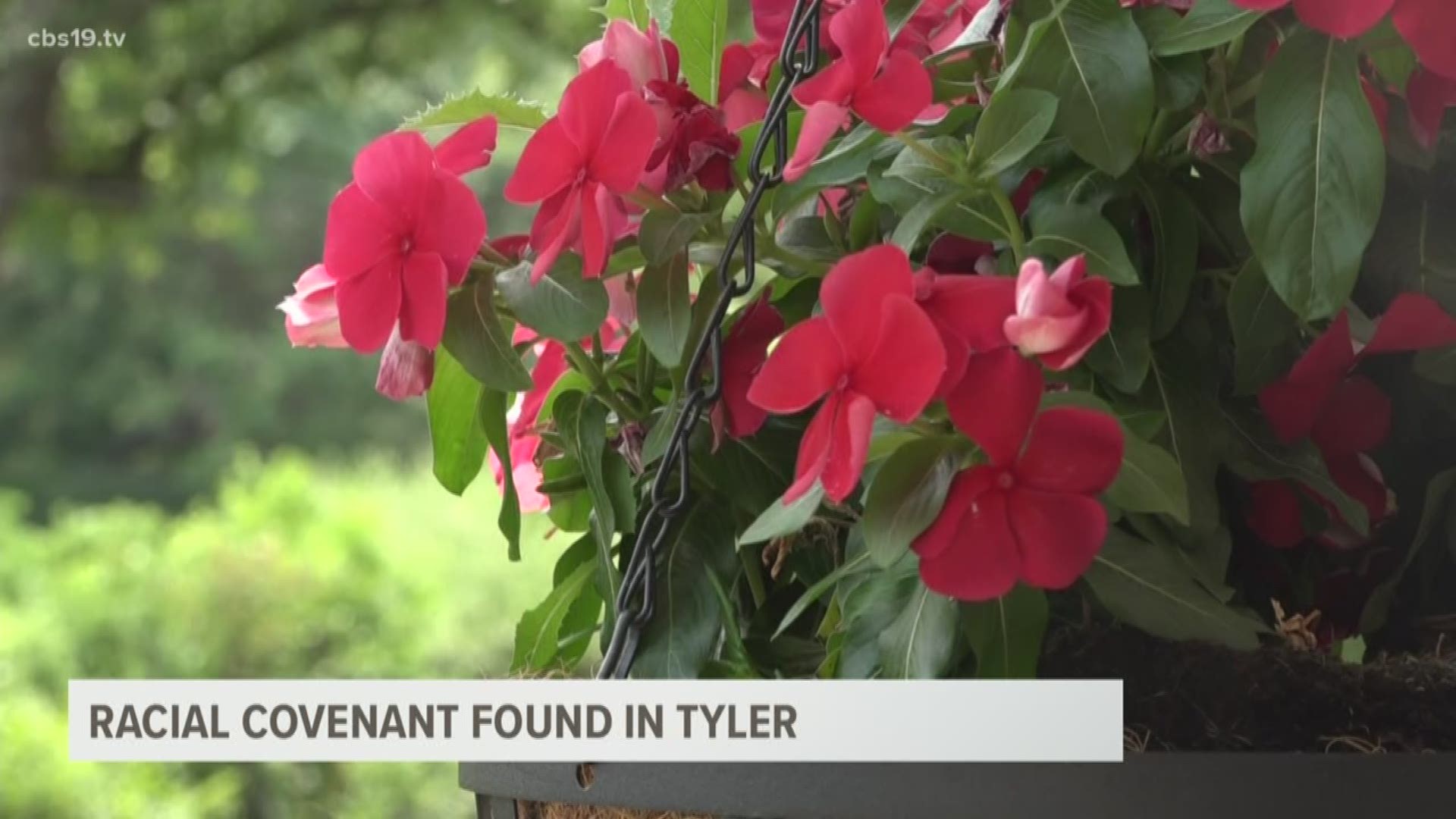TYLER, Texas —
Restrictions that prevent someone of another race to own or occupy a home is known as a "racial covenant."
Common in the early 1900's, some of those contracts are still attainable in the modern era. Within a quaint neighborhood on the South Side of Tyler, Jessica Richardson found her home's deed that contained racial context.
"The property can not be sold or occupied by anyone of African blood or descent unless they were servants for the property," Richardson said.
She bought her home in 2019. Recently she discovered, the 100 year old property left behind a deed with demands.
"In 2020 we know that these things have taken place in our nation's history but we don't expect to find them in our filing cabinets with current documents," Richardson explained.
Because of the Fair Housing Act which passed in 1968, that language is illegal on new deeds. The law bans race, religion or gender discrimination against the sale, rental or financing of a home.


"Things that are older and that have been there, they write in craziness," realtor Holly Hightower said. "I've seen some stuff that I was just like, 'Oh my gosh my clients can't buy this property because of what's in the restriction.'"
Hightower says deeds with specific restraints were commonly written decades ago. However, they are unenforceable today.
Attorney Kline Pillow says if you wanted to remove that language from the original deed, it may not be easy.
"To properly remove that language, we would have to have a release from everyone in that link," Pillow said. "So that's almost impossible."
That option would require all previous owners of the property agree to the change. However, there's another way to amend the deed.
"Then the really only other way really is to talk to your politicians and your legislatures because the state legislature can actually go in and pass some laws that will allow for those covenants to be removed from the deed," Pillow explained.
Richardson says she is still deciding whether or not she will get the deed revised. In the meantime, she hopes bringing attention to her historical deed will make others aware of Tyler's past.
"To see it in black and white that institutionalized racism does exist and it's still a problem, in our communities and and I felt like other people may be interested to know about that," Richardson said.

